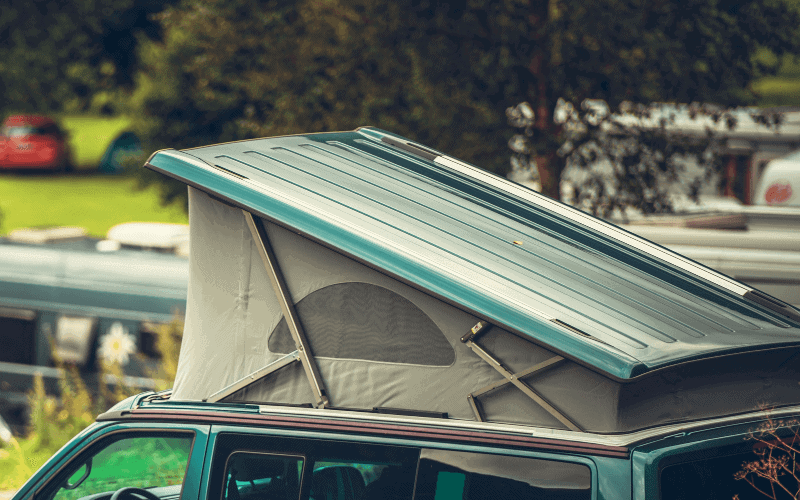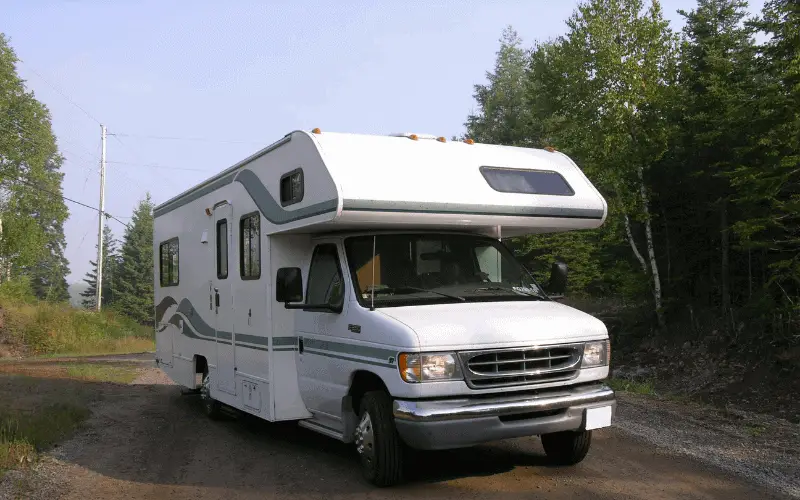Published Date: September 5, 2020
Last Updated on November 23, 2022 by Camper Front
Over the last few years, there has been a lot of heavy debate about which is better between TPO and PVC roofing RV. However, it all boils down to your personal preference.
TPO tends to have a more superior weathering and slightly better tear and break resistance than PVC, but PVC does have some characteristics that most people look out for.
For example, PVC roofing material has better chemical resistance; it does not absorb or get weakened by oils and greases, which means that PVC roofing is the ideal membrane for restaurants and other buildings with grease traps on the roof.
But this is just one of their many differences, so TPO and PVC roofing RV, which should you opt-in for?
Table of Contents
TPO vs PVC Roofing RV
TPO and PVC are both single-ply thermoplastic Roofing materials. Pvc roofing has been around since the 1960s, while it has been around Tpo since the 1990s.
When trying to make an informed decision between these two types of roofing, there are some factors to consider. This article will look at the disadvantages and advantages of each type of roofing, so you can compare and contrast before making a final decision.
What is TPO Roofing?

Thermoplastic polyolefin (TPO) is a layer of a single-ply reflective membrane that functions as a combination of polypropylene and ethylene-propylene.
TPO rubber offers flexible and weather-resistant characteristics; it also has thermoplastic seams that are activated through a hot-air welding technique; they are relatively cheap to absorb and install also. The membrane of a TPO roofing system composes of three layers:
- TPO Polymer Base
- Polyester-Reinforced Fabric Center
- A Thermoplastic Polyolefin Compounded Top single-Ply
TPO roofing system resists mold growth, dirt accumulation, tears impact, and punctures. It provides a lot of flexibility that allows for expansion caused by heat; they are UV-resistant, which allows them to keep cool.
A TPO roofing system is a great energy saver by lowering the costs of heating or cooling down your RV. They are great at reflecting UV rays, so you don’t have to spend a lot on air conditioning, thereby reducing your carbon footprint.
TPO roofing is produced in wide sheets, which makes the installation process on RVs easy. It is possible to not have any joints on your roofs due to their width. They are also super lightweight and can be easily maneuvered into place.
However, the TPO roofing material wears out and degrades at a faster rate compared to other types of plastic roofing. And they usually require a laminate cover to prevent them from developing weakness and cracks.
What is PVC Roofing?
PVC (polyvinyl chloride) roofing is also a single-ply roofing membrane that can be used on both flat and low-sloped roofs. A PVC roof consists of two layers.
Polyester is added between these layers to act as support. These layers also have additives that provide roofing material with flexibility and other benefits.
This type of roofing system is known for its strengths because it has heat-welded seams that create a watertight bond, which gives it permanence. As a result, PVC roofing doesn’t have to rely on tapes, adhesives, and caulks for sealing its seams like other types of roofing systems.
PVC roofs are wind resistant due to their welded seams. In fact, often, PVC roofs have been proven to hold up even in Category 3 hurricanes. Therefore, if you happen to live in an area that tends to experience intense winds and hurricanes, a PVC roof is a great choice.
Fire resistance is also one of the many benefits of PVC roofing, as this type of roofing system is very hard to ignite. a PVC roof is also resistant to oxidation reactions, which makes it exceptionally safer than other types of roofs.
The chemical resistance of PVC roofing means that you do not have to deal with roofing issues caused by chemical exposure. Therefore, your flat roof can continue to serve you even when exposed to harsh chemical conditions.
The downside to PVC roofing, however, is the fact that firstly, they are quite expensive to install, they are prone to shattering when exposed to extremely cold temperatures, and there is chlorine present in the material, which makes it bad for the environment, in fact, most countries have placed a ban on PVC roofing system because of this fact.
Factors to Consider When Choosing TPO or PVC Roofing RV

Price
When it comes to the cost of purchasing and installing TPO or PVC roofing, Pvc roofing tends to be a little bit more expensive than TPO; buying the membrane and the installation process is slightly more expensive than TPO. However, the price difference is of much significance.
Environmentally friendly
TPO actually has a slight edge over PVC on this one. TPO has an outstanding reflective quality that helps to create a cooling effect which offers additional insulation to the building.
This helps to reduce the use of air conditioning, making it a great energy saver. On the other hand, PVC membranes contain chlorine, which makes them less environmentally friendly.
Weathering
When it comes to weathering, TPO Roofing offers better tear and wear resistance in comparison to PVC, all thanks to its numerous advancements in recent years.
PVC roofing RV also weathers reasonably well, being that it has been in the roofing industry for over 60 years.
Energy efficiency
TPO and PVC roofing membranes both offer naturally reflective surfaces that reduce UV radiation penetration and facilitate greater energy efficiency.
When you make use of smoother TPO and PVC membranes, the roofing system is also better protected from dirt buildup, which can alter the membrane’s reflective properties.
Durability
Judging between TPO vs PVC roofing RV, TPO is more durable than PVC. They are known for being able to withstand algae and dirt buildup.
It also has a flexible membrane that is highly resistant to impact damage as well as tearing and puncturing from blunt forces.
Read Also: How Much Does A Pop Up Camper Weigh?
Conclusion
As stated before, the question of TPO vs. Pvc roofing, which is best, can only be answered by your personal preference. Garner enough information to enable you to make a well-informed decision, and of course, you can always seek recommendations from a roof installation expert. Good luck!

